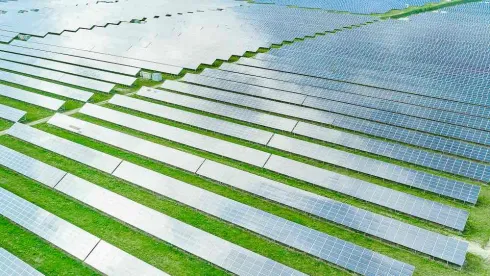With the growth of residential renewable energy power generation, driven in part by a rise in the use of Power Purchase Agreements (“PPAs”), compliance with consumer laws and regulations is critical. PPAs permit solar services providers to own, operate, and maintain solar systems on a customer’s property, while the customer agrees to purchase the system’s electric output from the solar services provider for a predetermined amount. A number of recent lawsuits* take issue with how a solar services provider reports the consumer’s PPA to the consumer reporting agencies. The suits have been filed in federal district courts in California alleging violations of the Fair Credit Reporting Act, the California Consumer Credit Reporting Agencies Act, the California Fair Debt Collection Practices Act, and California’s Unfair Competition Law.
The overarching allegation in these lawsuits is that PPAs are being reported on consumer credit reports as if the consumer took out a loan for the total value of the solar system. The plaintiffs in these cases assert that the long-term power supply agreements are not loans and should not be reported as such. They further allege that because the total value of the solar systems can be substantial, their consumer reports are showing significant additional debt, causing their credit scores to decline.
While each of the cases follows a different fact pattern, the common element in four of the five complaints is that consumers signed agreements to have solar panels installed on their homes under PPAs. The plaintiffs in those cases allege that they did not own any of the equipment and that the agreements were not loans. They assert that at some point after the agreements were signed, the solar services provider began reporting them as five-digit closed-end loans on the consumers’ credit reports.
In one of the complaints, the plaintiff alleges that they agreed to a direct installment purchase of solar panels for $21,000 in four payments. The plaintiff claims that more than a year after the final payment was made, the plaintiff’s credit report reflected an ongoing 20-year lease obligation where none existed.
To address the risk of attracting similar lawsuits, solar providers who offer PPAs should review the terms of their agreements and ensure that consumer credit reporting (if any) is in compliance with the terms of those agreements. Additionally, any reporting or collection activity should be reviewed for compliance with applicable state and federal laws.
* The following cases are pending:
Chaine v. Tesla Energy Operations, Inc., et al., Case No. 2:20-cv-09082, Central District of California, Los Angeles.
Diaz v. Tesla Energy Operations, Inc., et al., Case No. 2:21-cv-00211, Central District of California Los Angeles.
Lee and Hugo v. Tesla Energy Operations, Inc., et al., Case No. 2:20-cv-11097, Central District of California, Los Angeles.
Lubinsky v. Tesla Energy Operations, Inc., et al., Case No. 4:21-cv-00053, Northern District of California, San Jose.
Yu v. Tesla Energy Operations, Inc., et al., Case No. 2:21-cv-00062, Central District of California, Los Angeles.






 />i
/>i
